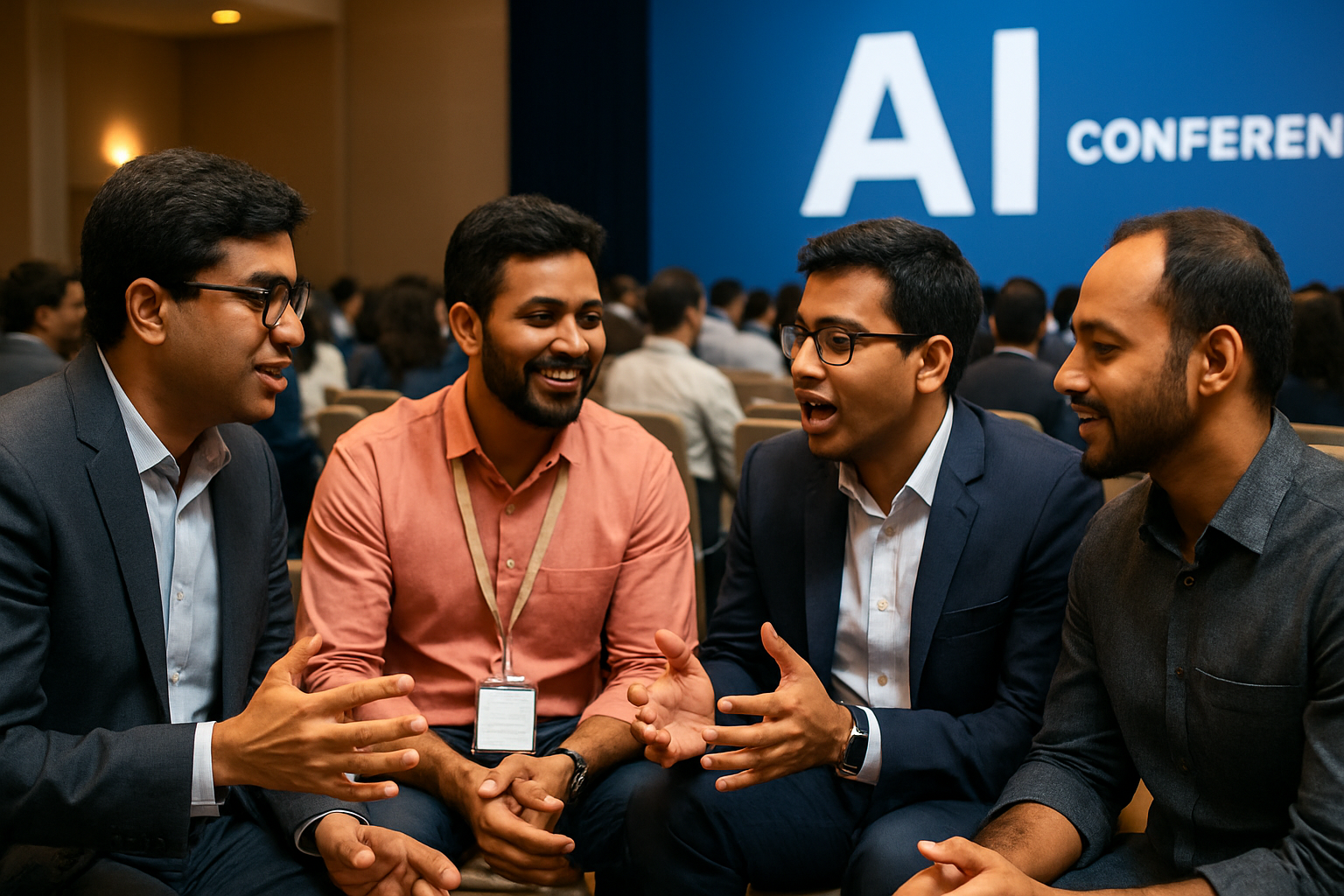Quick Take
- India launches inaugural AI-biology symposium August 12, 2025 at IISc Bengaluru with 500+ experts
- AI tools compress genetic research timelines from months to days for traditional analysis
- Genome India Project completed 10,000 sequences advancing personalized medicine development
- Five specialized sessions address practical AI implementation in life sciences research
- Limited seating available as interest exceeds initial capacity projections
Game-changing event tackles research bottlenecks
India’s scientific community stands at an inflection point as the nation prepares to host its first-ever AI-focused life sciences symposium. The groundbreaking event brings together 500+ experts at the Indian Institute of Science Bengaluru for “Biology in AI Era: A Paradigm Shift” on August 12, 2025. This marks a decisive shift toward artificial intelligence integration that could revolutionize how Indian researchers tackle biological discovery.
The timing couldn’t be more critical. Traditional biology methods are buckling under the weight of massive data volumes that modern research generates. AI tools offer solutions that slash analysis time from months to mere days, giving early adopters a serious competitive edge in the global research race.
Targeted sessions zero in on real-world challenges
Dr. Raja Mugasimangalam from Genotypic Technology teams up with Dr. Debnath Pal from IISc to chair the symposium. Their combined expertise steers the conversation toward practical implementation hurdles that Indian researchers face daily, rather than getting lost in theoretical discussions.
The afternoon program runs from 2:00 pm to 5:00 pm at JN Tata Auditorium, with five carefully crafted sessions. “The AI Shift in Scientific History” kicks things off with foundational concepts, while “AI Tools in Thesis Writing & Publishing” tackles the academic productivity challenges that plague research teams. The goal? Help teams publish findings faster than competitors using AI-powered workflows.
Infrastructure roadblocks get direct attention in “Your Personal AI Server: Democratising Access.” Dr. Debnath Pal and Vicky Amar Daiya present solutions that let small research labs tap into enterprise-level computing power without breaking the bank. Hardware costs often kill AI adoption before it starts, making this session gold for cash-strapped institutions.
The Department of Biotechnology’s support for the Genome India Project proves the government isn’t just talking about AI-driven research – they’re funding it. The project recently wrapped up sequencing 10,000 Indian genomes to push personalized medicine and targeted disease prevention forward. That’s a solid foundation for AI applications to build on.
Single-cell genomics is opening doors to precision medicine breakthroughs, while liquid biopsy tech lets doctors monitor diseases through simple blood tests. Machine learning is speeding up genetic research across multiple clinical fronts, with cancer treatment protocols increasingly using genetic variant analysis to improve patient outcomes.
Industry data shows AI-driven genomic analysis is taking off fast across Indian research institutions. By 2025, precision medicine adoption jumps significantly in India, setting the country up to lead in personalized healthcare delivery.
Companies see real money in AI genomics
Businesses using AI genomics are gaining serious advantages in drug discovery and development. Traditional drug discovery timelines are shrinking from years to months thanks to AI-assisted molecular analysis and prediction models. That translates to immediate commercial value for pharmaceutical partnerships.
Expert panels tackle commercialization head-on, including patent protection strategies for AI-driven discoveries. Innovation pathways need testing protocols that meet evolving regulatory standards for AI-assisted medical research. The goal is ensuring commercial viability alongside scientific credibility.
The broader Genomics India Conference spans August 12-14, 2025, featuring over 60 speakers and at least 50 organizations from academia and industry. Research areas include cancer genomics, agricultural applications, and viral genome studies that are pulling in significant funding right now.
Real barriers need strategic solutions
Data access problems persist across research institutions, with system integration demanding serious technical know-how. Privacy concerns require bulletproof security protocols for handling sensitive genomic information. AI model transparency remains a major stumbling block for research validation and peer review processes.
User acceptance varies widely in traditional research environments, requiring comprehensive training programs for effective adoption. Infrastructure costs could strain smaller organization budgets, while regulatory frameworks keep evolving rapidly in this emerging field.
Successful implementation demands strategic technology partnerships and investment pipelines that support long-term sustainability. Training programs ensure effective user adoption across diverse research teams, creating the foundation for widespread transformation.
India stakes claim to global research leadership
Seating remains tight for the AI symposium as interest levels blow past initial capacity estimates. Early registration locks in participation for this pioneering event that bridges the gap between academic research and commercial applications.
The symposium signals India’s serious commitment to biological innovation leadership in the AI era. Participants walk away with practical insights for immediate application in their research workflows. Plus, networking opportunities strengthen India’s position in international research collaborations and funding partnerships.
The marriage of biology and artificial intelligence creates unprecedented opportunities for healthcare innovation. Organizations that embrace this transformation will lead tomorrow’s personalized medicine developments, with India’s research community perfectly positioned for this paradigm shift in life sciences methodology.






